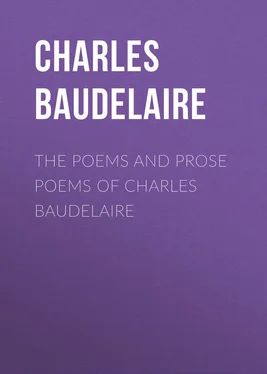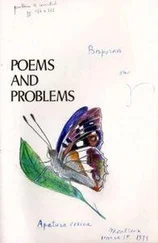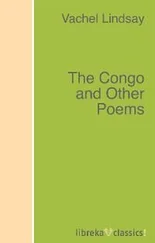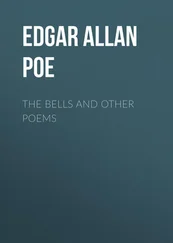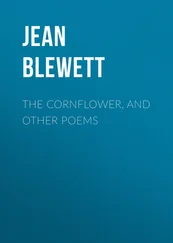Charles Baudelaire - The Poems and Prose Poems of Charles Baudelaire
Здесь есть возможность читать онлайн «Charles Baudelaire - The Poems and Prose Poems of Charles Baudelaire» — ознакомительный отрывок электронной книги совершенно бесплатно, а после прочтения отрывка купить полную версию. В некоторых случаях можно слушать аудио, скачать через торрент в формате fb2 и присутствует краткое содержание. Жанр: foreign_antique, foreign_prose, foreign_poetry, на английском языке. Описание произведения, (предисловие) а так же отзывы посетителей доступны на портале библиотеки ЛибКат.
- Название:The Poems and Prose Poems of Charles Baudelaire
- Автор:
- Жанр:
- Год:неизвестен
- ISBN:нет данных
- Рейтинг книги:4 / 5. Голосов: 1
-
Избранное:Добавить в избранное
- Отзывы:
-
Ваша оценка:
- 80
- 1
- 2
- 3
- 4
- 5
The Poems and Prose Poems of Charles Baudelaire: краткое содержание, описание и аннотация
Предлагаем к чтению аннотацию, описание, краткое содержание или предисловие (зависит от того, что написал сам автор книги «The Poems and Prose Poems of Charles Baudelaire»). Если вы не нашли необходимую информацию о книге — напишите в комментариях, мы постараемся отыскать её.
The Poems and Prose Poems of Charles Baudelaire — читать онлайн ознакомительный отрывок
Ниже представлен текст книги, разбитый по страницам. Система сохранения места последней прочитанной страницы, позволяет с удобством читать онлайн бесплатно книгу «The Poems and Prose Poems of Charles Baudelaire», без необходимости каждый раз заново искать на чём Вы остановились. Поставьте закладку, и сможете в любой момент перейти на страницу, на которой закончили чтение.
Интервал:
Закладка:
He took Manet seriously. He wrote to him in a paternal and severe tone. Recall his reproof when urging the painter to exhibit his work. "You complain about attacks, but are you the first to endure them? Have you more genius than Chateaubriand and Wagner? They were not killed by derision. And in order not to make you too proud I must tell you that they are models, each in his way, and in a very rich world, while you are only the first in the decrepitude of your art." (Letters, p. 436.)
Would Baudelaire recall these prophetic words if he were able to revisit the glimpses of the Champs Elysées at the Autumn Salons? What would he think of Cézanne? Odilon Redon he would understand, for he is the transposer of Baudelairianism to terms of design and colour. And perhaps the poet whose verse is saturated with tropical hues – he, when young, sailed in southern seas – might appreciate the monstrous debauch of form and colour in the Tahitian canvases of Paul Gauguin.
Baudelaire's preoccupation with pictorial themes may be noted in his verse. He is par excellence the poet of æsthetics. To Daumier he inscribed a poem; and to the sculptor Ernest Christophe, to Delacroix (Sur Tasse en Prison), to Manet, to Guys (Rêve Parisien), to an unknown master (Une Martyre); and Watteau, a Watteau à rebours, is seen in Un Voyage à Cythère; while in Les Phares this poet of the ideal, spleen music, and perfume, shows his adoration for Rubens, Leonardo da Vinci, Michelangelo, Rembrandt, Puget, Goya, Delacroix – "Delacroix, lac de sang hanté des mauvais anges." And what is more exquisite than his quatrain to Lola de Valence, a poetic inscription for the picture of Edouard Manet, with its last line as vaporous, as subtle as Verlaine: "Le charme inattendu d'un bijou rose et noir!" Heine called himself the last of the Romantics. The first of the "Moderns" and the last of the Romantics was the many-sided Charles Baudelaire.
He was born at Paris, April 9, 1821 (Flaubert's birth year), and not April 21, as Gautier has it. His father was Joseph Francis Baudelaire, or Baudelaire, who occupied a government position. A cultivated art lover, his taste was apparent in the home he made for his second wife, Caroline Archimbaut-Dufays, an orphan and the daughter of a military officer. There was a considerable difference in the years of this pair; the mother was twenty-seven, the father sixty-two, at the birth of their only child. By his first marriage the elder Baudelaire had one son, Claude, who, like his half-brother Charles, died of paralysis, though a steady man of business. That great modern neurosis, called Commerce, has its mental wrecks, too, and no one pays attention; but when a poet falls by the wayside is the chase begun by neurologists and other soul-hunters seeking victims. After the death of Baudelaire's father, the widow, within a year, married the handsome, ambitious Aupick, then chef de bataillon, lieutenant-colonel, decorated with the Legion of Honour, and later general and ambassador to Madrid, Constantinople, and London. Charles was a nervous, frail youth, but unlike most children of genius, he was a scholar and won brilliant honours at school. His stepfather was proud of him. From the Royal College of Lyons, Charles went to the Lycée Louis-le-Grand, Paris, but was expelled in 1839, on various discreditable charges. Troubles soon began at home. He was irascible, vain, precocious, and given to dissipation. He quarreled with General Aupick, and disdained his mother. But she was to blame, she has confessed; she had quite forgotten the boy in the flush of her second love. He could not forget, or forgive what he called her infidelity to the memory of his father. Hamlet-like, he was inconsolable. The good Bishop of Montpellier, who knew the family, said that Charles was a little crazy – second marriages usually bring woe in their train. "When a mother has such a son, she doesn't re-marry," said the young poet Charles signed himself Baudelaire-Dufays, or sometimes Dufais. He wrote in his journal: "My ancestors, idiots or maniacs … all victims of terrible passions"; which was one of his exaggerations. His grandfather on the paternal side was a Champenois peasant, his mother's family presumably Norman, but not much is known of her forbears. Charles believed himself lost from the time his half-brother was stricken. He also believed that his instability of temperament – and he studied his "case" as would a surgeon – was the result of his parents' disparity in years.
After his return from the East, where he did not learn English as has been said – his mother taught him as a boy to converse in and write the language – he came into his little inheritance, about fifteen thousand dollars. Two years later he was so heavily in debt that his family asked for a guardian on the ground of incompetency. He had been swindled, being young and green. How had he squandered his money? Not exactly on opera-glasses, like Gérard de Nerval, but on clothes, pictures, furniture, books. The remnant was set aside to pay his debts. Charles would be both poet and dandy. He dressed expensively but soberly, in the English fashion; his linen dazzling, the prevailing hue of his habiliments black. In height he was medium, his eyes brown, searching, luminous, the eye of a nyctalops, "eyes like ravens"; nostrils palpitating, cleft chin, mouth expressive, sensual jaw, strong and square. His hair was black, curly, glossy, his forehead high, square and white. In the Deroy portrait he wears a beard; he is there what Catulle Mendès nicknamed him: "His Excellence, Monseigneur Brummel!" Later he was the elegiac Satan, the author of L'Imitation de N.S. le Diable; or the Baudelaire of George Moore: "the clean-shaven face of the mock priest, the slow cold eyes and the sharp cunning sneer of the cynical libertine who will be tempted that he may better know the worthlessness of temptation." In the heyday of his blood he was perverse and deliberate. Let us credit him with contradicting the Byronic notion that ennui could best be cured by dissipation; in sin Baudelaire found the saddest of all consolations. Mendès laughs at the legend of Baudelaire's violence, of his being given to explosive phrases. Despite Gautier's stories about the Hôtel Pimodan and its club of hasheesh-eaters, M. Mendès denies that Baudelaire was a victim of the hemp. What the majority of mankind does not know concerning the habits of literary workers is this prime fact: men who work hard, writing verse – and there is no mental toil comparable to it – cannot drink, or indulge in opium, without inevitable collapse. The old-fashioned ideas of "inspiration," spontaneity, easy improvisation, the sudden bolt from heaven, are delusions still hugged by the world. To be told that Chopin filed at his music for years, that Beethoven in his smithy forged his thunderbolts by the sweat of his brow, that Manet toiled like a labourer on the dock, that Baudelaire was a mechanic in his devotion to poetic work, that Gautier was a hard-working journalist, are disillusions for the sentimental. Minerva springing full-fledged from Jupiter's skull to the desk of the poet is a pretty fancy; but Balsac and Flaubert did not encourage this fancy. Work literally killed Poe, as it killed Jules de Goncourt, Flaubert and Daudet. Maupassant went insane because he would work and he would play the same day. Baudelaire worked and worried. His debts haunted him his life long. His constitution was flawed – Sainte-Beuve told him that he had worn out his nerves – from the start, he was détraqué; but that his entire life was one huge debauch is a nightmare of the moral police in some red cotton nightcap country.
Конец ознакомительного фрагмента.
Текст предоставлен ООО «ЛитРес».
Прочитайте эту книгу целиком, купив полную легальную версию на ЛитРес.
Читать дальшеИнтервал:
Закладка:
Похожие книги на «The Poems and Prose Poems of Charles Baudelaire»
Представляем Вашему вниманию похожие книги на «The Poems and Prose Poems of Charles Baudelaire» списком для выбора. Мы отобрали схожую по названию и смыслу литературу в надежде предоставить читателям больше вариантов отыскать новые, интересные, ещё непрочитанные произведения.
Обсуждение, отзывы о книге «The Poems and Prose Poems of Charles Baudelaire» и просто собственные мнения читателей. Оставьте ваши комментарии, напишите, что Вы думаете о произведении, его смысле или главных героях. Укажите что конкретно понравилось, а что нет, и почему Вы так считаете.
